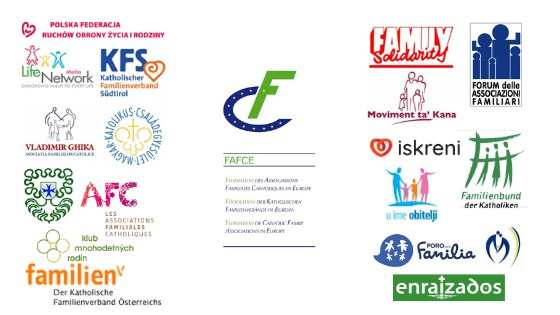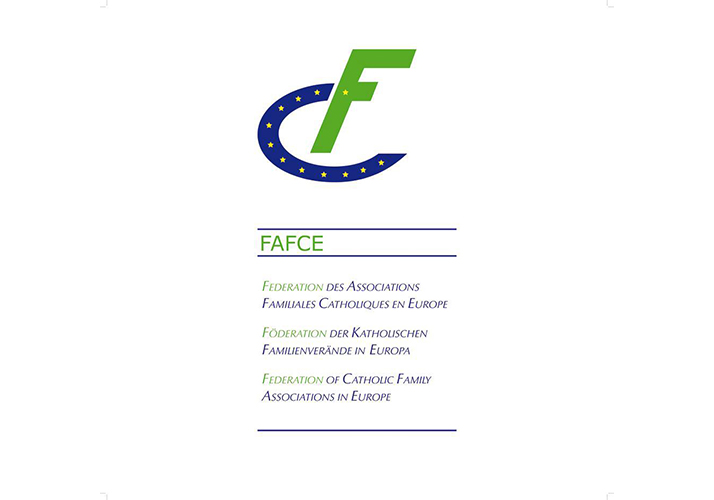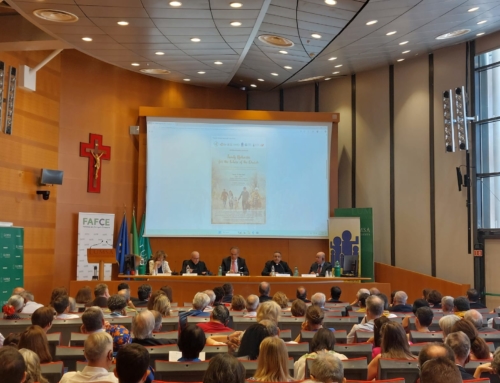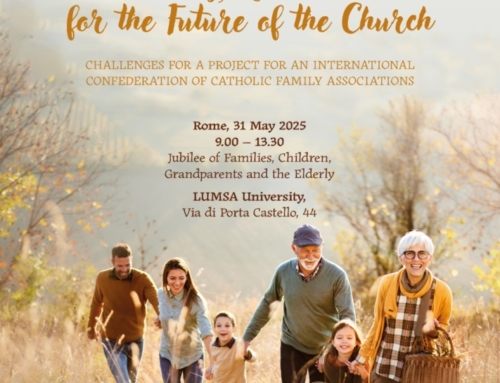Brussels, 7th November 2011
The Federation of Catholic Family Associations in Europe (FAFCE) which holds a participatory status with the Council of Europe, greets the final judgment presented on 3rd November 2011 by the European Court of Human Rights (ECHR) referring to the Austrian ban on using sperm and ova donation for in vitro fertilisation (heterologous IVF). The case S.H. and others vs. Austria is a very sensitive one with important implications for the family, namely in two regards: the primary interest of the child and the relations between the mother, father and their child, hence the notion of filiation.
The first decision of the Court challenged the very definition of the “family”: i.e. whether the family is a reality as such or rather a subjective concept. Choosing the latter paves the way for the possibility of using the family to serve purposes that stem from individual wishes without taking into account the consequences for others, and for the society (for example recognising that there would be a “right to have a child”).
Henceforth, the ECHR upholds the notion of filiation since it recognises the legitimacy of the Austrian law that seeks to ensure clear parentage between a child, his or her mother and father. Indeed, the Court has now ruled that the Austrian ban on using sperm and ova donation for in vitro fertilisation was not in breach of the right to respect for private and family life (article 8 of the European Convention on Human Rights). This is a major victory for all those who believe that the primary interest of the child should be put first in any circumstances.
The ECHR judgment also establishes that motherhood is not a “concept” that can be adapted to different social realities. It observes that “the Austrian legislature was guided by the idea that medically assisted procreation should take place similarly to natural procreation (…) to avoid disputes between a biological and a genetic mother in the wider sense (§104). Furthermore, it also asserts that “the Court cannot overlook the fact that the splitting of motherhood between a genetic mother and the one carrying the child differs significantly from adoptive parent-child relations” (§105). This decision thereby recalls that filiation indicates a particular bond – biological, physical, psychological – between the mother, the father and the child, of which no dimension can be absent.
Furthermore, this case is also of utter importance for maintaining the legitimacy of the “moral considerations” in national legislation, since law is largely based on moral. The ECHR recognises that the Austrian legislature “tried to reconcile the wish to make medically assisted procreation available and the existing unease among large sections of society as to the role and possibilities of modern reproductive medicine, which raises issues of a morally and ethically sensitive nature.” (§104). The Court reckons that these considerations are not in breach of article 8 and that the concerns of the Austrian Government remain, namely “ that the prohibition of the donation of gametes involving the intervention of third persons in a highly technical medical process was a controversial issue in Austrian society, raising complex questions of a social and ethical nature on which there was not yet a consensus in the society and which had to take into account human dignity, the well-being of children thus conceived and the prevention of negative repercussions or potential misuse.” (§113).
The judgment also strengthens the respect for the principle of subsidiarity in bioethical matters, stating that there must be a wide margin of appreciation for the Members States: “since the use of IVF treatment gave rise then and continues to give rise today to sensitive moral and ethical issues against a background of fast-moving medical and scientific developments, and since the questions raised by the case touch on areas where there is not yet clear common ground amongst the member States, the Court considers that the margin of appreciation to be afforded to the respondent State must be a wide one (…). (§97).
With regard to all these reasons, the FAFCE intervened together with its Austrian member organisation Katholische Familienverband Österreichs (KFÖ), (and more than 50 parlamentarians and 6 other NGOs, all represented by the European Centre for Law and Justice) as a third party in the case when it was referred to the Grand Chamber of the ECHR. The FAFCE welcomes this decision that opens up a perspective of further reflexion on the effects of the medically assisted procreation techniques, beginning with those that the child incurs.
Contact: +32 4 70 20 39 18 or info@fafce.org








